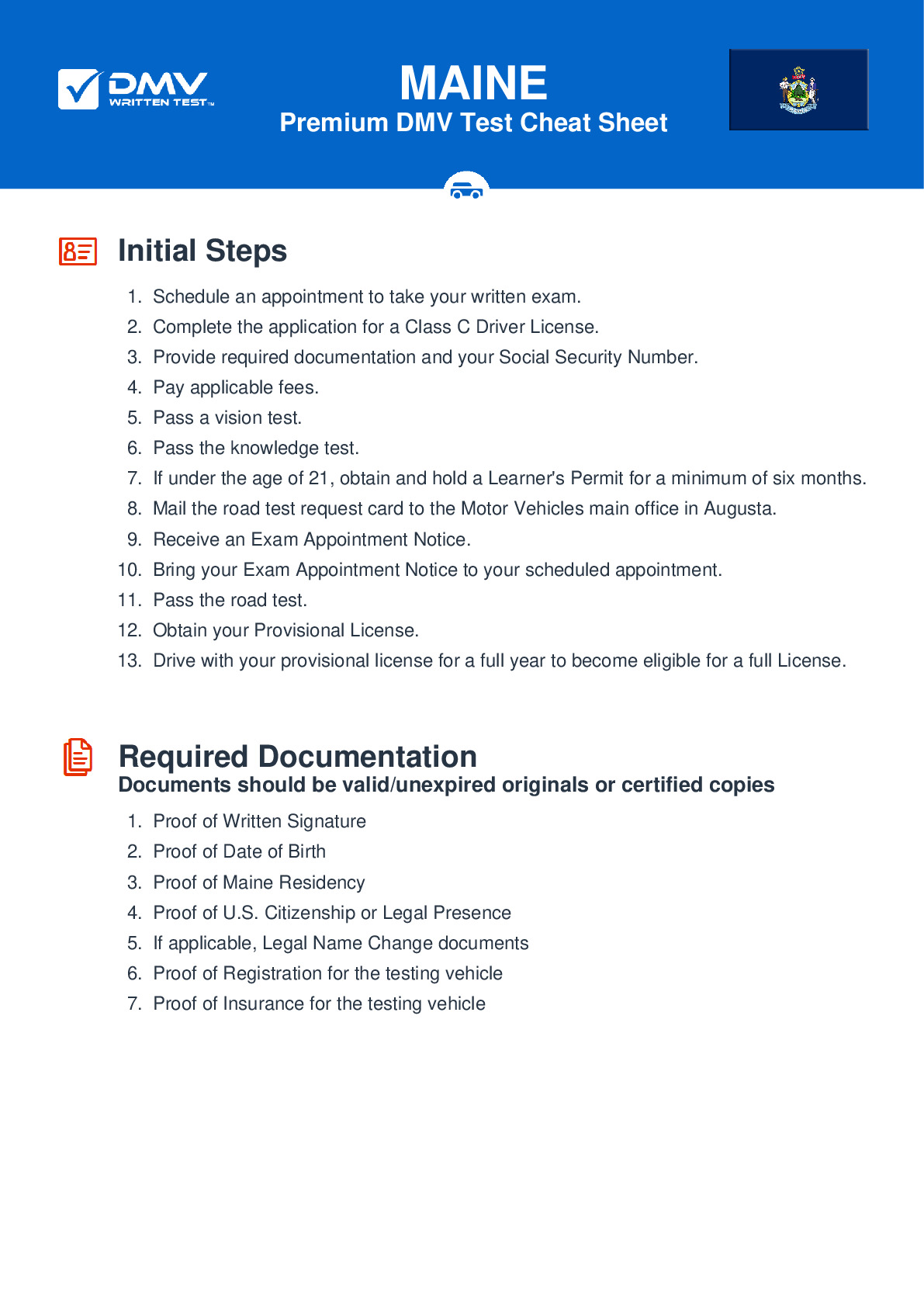2026 Maine Permit Test 10
The following questions are from real DMV written tests. These are some of the actual permit questions you will face in Maine. Each permit practice test question has three answer choices. Select one answer for each question and select "grade this section." You can find this button at the bottom of the drivers license quiz. For a complete list of questions and answers for Maine please visit https://cheat-sheets.dmv-written-test.com/en/maine/car.
Number of Tests
Number of Question
Passing Score
9. If weather or light conditions require you to have your lights on while driving:
Explanation
Use your low beam headlights when driving in foggy, snowy, or rainy conditions. Light from high beam headlights will reflect back, causing glare and making it even more difficult to see ahead.
10. If your vehicle starts to lose traction because of water on the road, you should:
Explanation
When driving in heavy rain at speeds as low as 30 mph, your tires may lose all contact with the road and instead ride up on a layer of water above the surface of the road. This is called "hydroplaning." If your vehicle starts to hydroplane, slow down gradually and do not apply the brakes.
11. After you have passed a vehicle moving in the same direction, it is safe to move back into the right lane:
Explanation
When passing, you should not return to your original lane until you can see both headlights of the passed vehicle in your rearview mirror. Always check your blind spots before moving back into your original lane.
13. If worried, nervous, angry, or crying, a driver:
Explanation
You may not be able to drive well if you are worried, excited, crying, angry, or depressed. Emotions can distract you from your driving because your mind is focused on something else. Take time to calm down and get focused before driving.
14. If your turn signals fail, you should use ____ to indicate that you are turning.
Explanation
If your vehicle's turn signals do not work, you should use hand signals to indicate when you intend to change direction.
15. Which of the following does not happen after drinking?
Explanation
Alcohol reduces your reaction time, reduces your ability to see clearly, changes your judgment of speed and distances, reduces your ability to recover from the glare of headlights, and often reduces your inhibitions and makes you more likely to take risks.
16. Which of these statements is true about driving and taking medications?
Explanation
Remember that all medications, prescription or over-the-counter, are potentially dangerous and could impair your driving. Over-the-counter medicines that you take for colds and allergies can make you drowsy and affect your driving ability. It is your responsibility to know how your medication affects your ability to drive.
Ranked by best match




